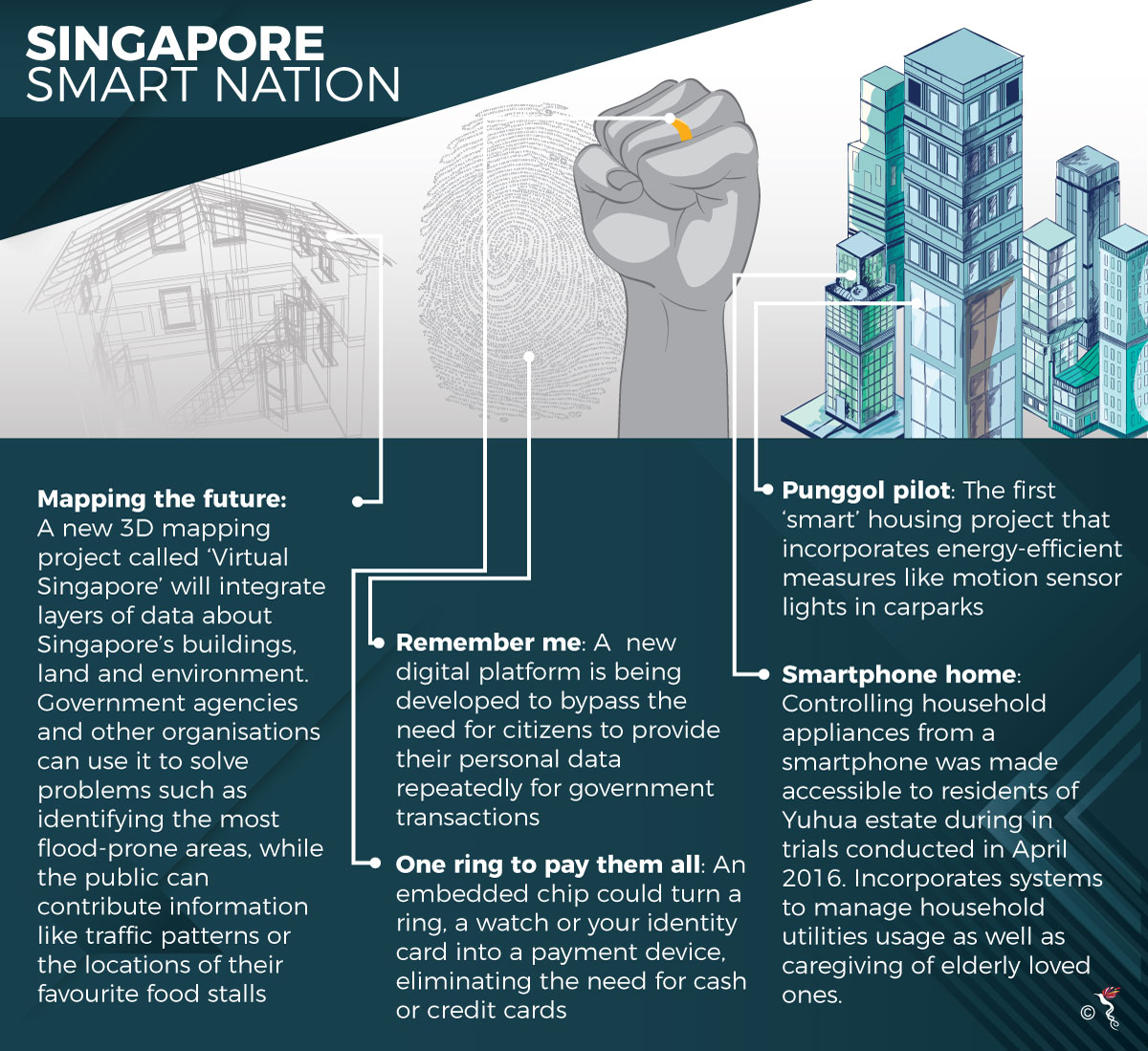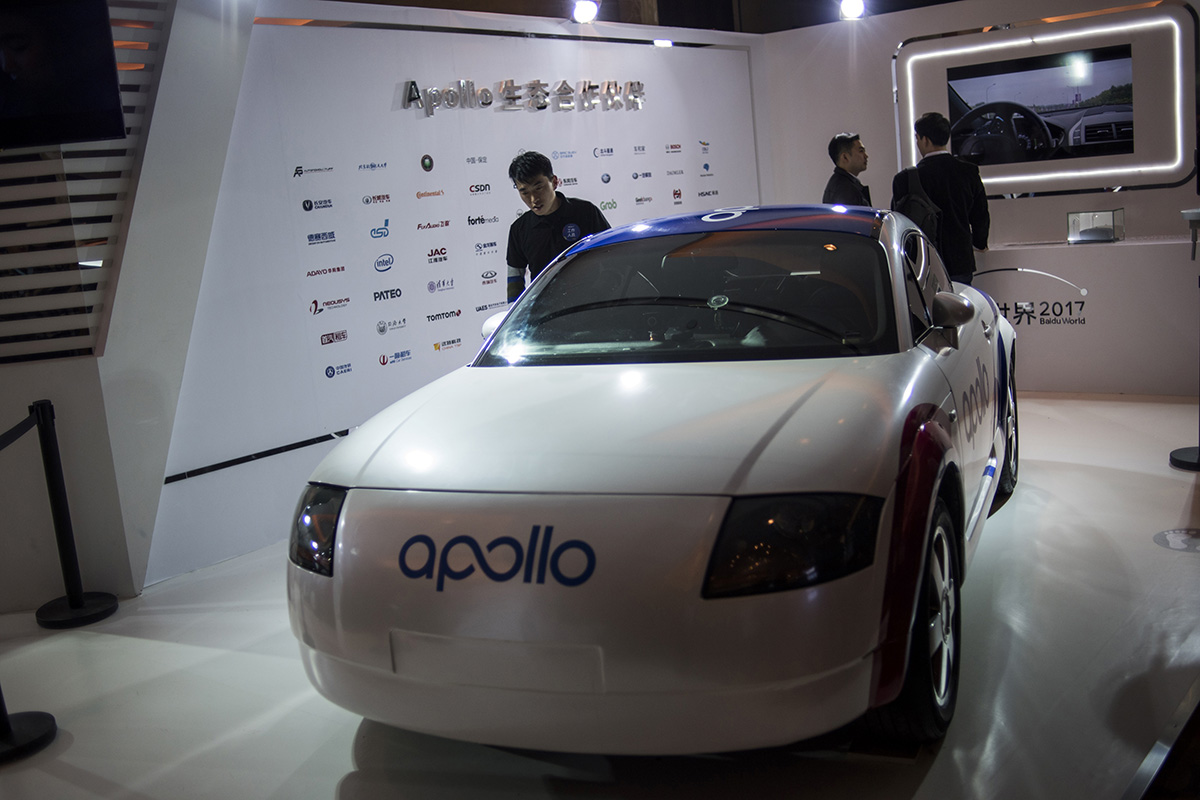The recent joint venture between Baidu and Asia Mobility Industries (AMI) to develop autonomous driving technology in Singapore brings it one step closer to becoming the smart nation it hopes to be.
As part of its smart nation initiatives, the city state is aiming to improve mobility by implementing data analytics into its transportation system.
This has so far included providing for contactless fare payments on public transport, running a trial run of autonomous taxis in 2016 and more recently, Nanyang Technological University’s collaborations with Volvo to test autonomous electric buses.
Now, private vehicles will get a share of the fun too.
Singapore is targeting zero growth in ownership of private vehicles by 2020 and has made it notoriously difficult for private car ownership in Singapore. Would-be buyers need to get a certificate of entitlement, which costs an average of S$49,651 (as of 2017) and on top of that, cover other car ownership costs such as auto insurance and road tax. As a result, only about 15 percent of its resident population owns a car.
Autonomous cars, however, can be implemented into a car-sharing system, which can be made accessible to everyone through a rental mechanism. By making only a fixed number of cars available, this achieves the aim of limiting the number of cars that go on Singapore roads.
Electric car-sharing is a model that is currently available in Singapore through BlueSG, which launched in the island state in December and has successfully amassed 5,000 rentals for its 80 cars so far.
Autonomous driving technology would not only help Singapore achieve its aim of putting as few cars on the road as possible, it would also help to reduce the number of traffic accidents, help it optimise parking spaces while achieving an overall reduction in commuting costs.
The cost savings will flow into the costs of producing goods, thus enabling greater production of goods and services at the same cost. Thus, tech solutions would enable Singapore to bridge its limits to land and manpower in developing the country.

Source: The Straits Times
The smart nation initiative is also a way for Singapore to meets the everyday needs of its people in a more time and cost-effective way.
Autonomous vehicles could work in tandem with the government’s long-term initiatives to integrate persons with disabilities into the workforce, helping to increase their mobility while not necessarily increasing the personal costs of doing so. They would require less assistance in getting around, which gives them autonomy over their own lives, essentially empowering them as individuals.
This works for the elderly population too, wherein 2017, the percentage of the Singapore residents aged over 65 grew from 8.5% to 13% of Singapore’s population.
All this however, would require Singapore to come up with guidelines in how to regulate its self-driven traffic. Currently, trials are set in controlled conditions, which means that there is less data to draw upon for real-time situations.
While Baidu faces regulatory issues and haphazard traffic conditions testing its autonomous cars in countries like China, Singapore’s orderly road traffic is less likely to present a problem to its tech.
Still, running tests on a different landscape could help Baidu improve Apollo’s capabilities, which would result in safer and more comfortable journeys overall. Most recently, version 2.0 of the Apollo software was unveiled at the Consumer Electronics Show in Las Vegas (CES), showcasing updates like more HD mapping services, improved vision and more driving support. The updates will enable autonomous driving trials to be conducted during the day and night, group president and COO of Baidu, Qi Lu noted during the unveiling.
To truly aid development needs at a national level, however, the technology would need to be advanced enough to account for eventualities. This is, for instance if technological failures were to occur, or if external conditions warranted the need for additional safety measures to kick in autonomously. Through the Apollo open-source concept, Baidu should be able to leverage data from its 90 partners or so to develop solutions that integrate deep learning.
Since Singapore’s smart nation programme also includes initiatives in healthcare, services and living, integrating these networks of data could only accelerate autonomous vehicle technology to the next level, sooner. A smart nation, after all, is one that incorporates as much know-how as possible into creating creative, workable solutions for the needs of its community across the board.
Recommended stories:
